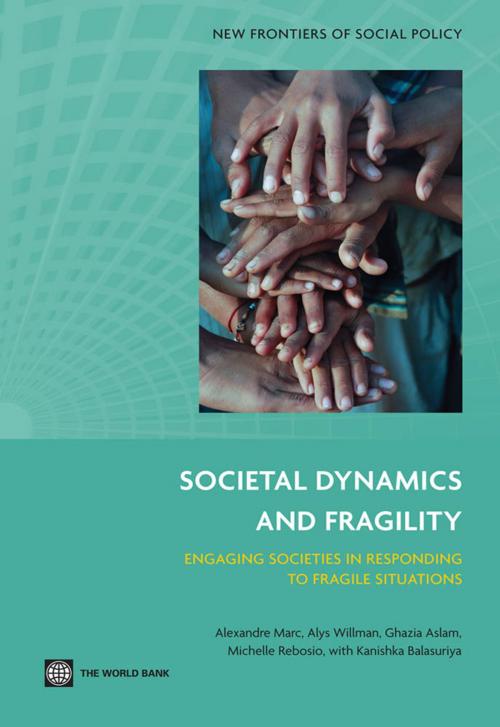Societal Dynamics and Fragility
Engaging Societies in Responding to Fragile Situations
Nonfiction, Social & Cultural Studies, Political Science, Government, Social Policy| Author: | The World Bank | ISBN: | 9780821397084 |
| Publisher: | World Bank Publications | Publication: | October 12, 2012 |
| Imprint: | Language: | English |
| Author: | The World Bank |
| ISBN: | 9780821397084 |
| Publisher: | World Bank Publications |
| Publication: | October 12, 2012 |
| Imprint: | |
| Language: | English |
Today's world is changing at breakneck speed, shaking the very foundations of many societies. Increased mobility through massive urbanization and migration allows people unprecedented access to different cultures and ideas; advanced technologies speed the pace of human interaction; the globalization of communication offers new forms of social relationships that may directly contradict traditional norms for behavior. These changes create tremendous stresses on relationships in societies - affecting the way youth interact with their elders, the way women and men relate to each other, how urban migrants and refugees relate to their new environments, and so on. The impacts of these changes are felt acutely in 'fragile' situations, where groups and institutions struggle to adapt to the stresses of rapid social change. In the worst cases, where fragility has given way to open violence - people are more than twice as likely to be malnourished, more than three times as likely to be unable to send their children to school, twice as likely to see their children die before age five, and more than twice as likely to lack clean water. In addition to these domestic challenges, the costs of fragility often spill over to neighboring regions in the form of trafficking in illegal goods and persons, corruption, and violence. 'Societal Dynamics and Fragility' frames a fresh approach to these challenges, by focusing on improving relationships across groups and institutions in society. Drawing on case studies from Yemen, Central African Republic, Haiti, Liberia and Aceh (Indonesia), the book provides a framework for understanding and healing the social divides that often get in the way of building capable institutions and exiting from fragility.
Today's world is changing at breakneck speed, shaking the very foundations of many societies. Increased mobility through massive urbanization and migration allows people unprecedented access to different cultures and ideas; advanced technologies speed the pace of human interaction; the globalization of communication offers new forms of social relationships that may directly contradict traditional norms for behavior. These changes create tremendous stresses on relationships in societies - affecting the way youth interact with their elders, the way women and men relate to each other, how urban migrants and refugees relate to their new environments, and so on. The impacts of these changes are felt acutely in 'fragile' situations, where groups and institutions struggle to adapt to the stresses of rapid social change. In the worst cases, where fragility has given way to open violence - people are more than twice as likely to be malnourished, more than three times as likely to be unable to send their children to school, twice as likely to see their children die before age five, and more than twice as likely to lack clean water. In addition to these domestic challenges, the costs of fragility often spill over to neighboring regions in the form of trafficking in illegal goods and persons, corruption, and violence. 'Societal Dynamics and Fragility' frames a fresh approach to these challenges, by focusing on improving relationships across groups and institutions in society. Drawing on case studies from Yemen, Central African Republic, Haiti, Liberia and Aceh (Indonesia), the book provides a framework for understanding and healing the social divides that often get in the way of building capable institutions and exiting from fragility.















